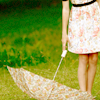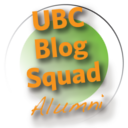
Growing up, walking on grass was just not something we did — there was so little of it, after all, in our sky-scraping city with its parks of concrete. Grass is something precious there; something to be looked at, but never walked upon. Coupled with our mothers’ fears of us picking up dirt and parasites (but mostly dirt), it doesn’t surprise me to reflect on how I have never really walked upon the earth until recently.
And yet it is one of the most basic acts we know in our bones. An act our ancestors did without a second thought, to walk on the ground that gives rise to each of us. We follow them in their footsteps with each pressing of a sole onto the soil, each lifting up and setting down again, our skin to the earth’s.
An act I have been relearning in this past summer, taught out of me by the misgivings of people who have been out of touch with the thing they speak of for so long, they come to fear it.
The dirt is really nothing, in itself.
A brushing of the foot before you slip it into your shoe, a cleaning or a washing away with clear running water when you get home — it is something, to have clear running water at our beck and call.
It doesn’t always match up to what I think it will be.
The closest I came to knowing grass as a child, was by reading of it, the same way most of my ‘knowledge’ is acquired. But none of it is true knowing, not when you’ve never really felt the supple, forgiving blades for what they are, not when you know the difference between sparse, thinly growing grass and thick lush patches — and I used to think that it would always be thick and lush. That it would be a soft, springy carpet that would feel divine to walk upon, because that’s how my childhood stories romanticized them. And once in a blue moon, if I am lucky (or if someone has watered their garden to no end), that’s what I get. More often than not, however, it is more like the grass I walked upon today: in some parts soft, in most parts tougher, with more individual strands you can feel, but which bend under your weight regardless.
It gives me a kind of peace to walk like this. To fill in some of the gaps of what I never knew, and will never know in the same way as one who grows up with the knowledge of the land as their birthright instinctively does.
And I will have to learn, all my life, what others take for granted, and will have to remember, with great effort, how to care for this place that we live on. This place, this earth, I did not even know how much I cared for until I came to see and touch and listen to with the senses of my own body, that had once known nothing more than what other humans had created out of stone and steel and concrete — amazing, wondrous things, but creations with no sense of context when seen away, apart from, the rest of the world that we live in.
Each time I reach out and touch the earth for myself, I forge another link in this new, and somehow ancient, relationship. I am (re)discovering the meaning of grass by learning of its being; this grass that is one of my namesakes in the language of my human heritage. These slender blades and open fields tell me something of who I am, and teach me something of what I always hoped to believe: that we belong here, here in this world. Not on Mars or on any other distant planet, awesome as it would be to reach those places. Here, on our own blue and green earth.

